On the morning of June 24, with 418/423 delegates participating in the vote in favor, the National Assembly passed the Law on Cadres and Civil Servants (amended).
No distinction between commune-level and provincial-level officials and civil servants
Minister of Home Affairs Pham Thi Thanh Tra said that the Law has completed regulations to implement the policy of building a unified, interconnected, and synchronous civil service from the central to the commune level, without distinguishing between commune-level and provincial-level officials and civil servants.
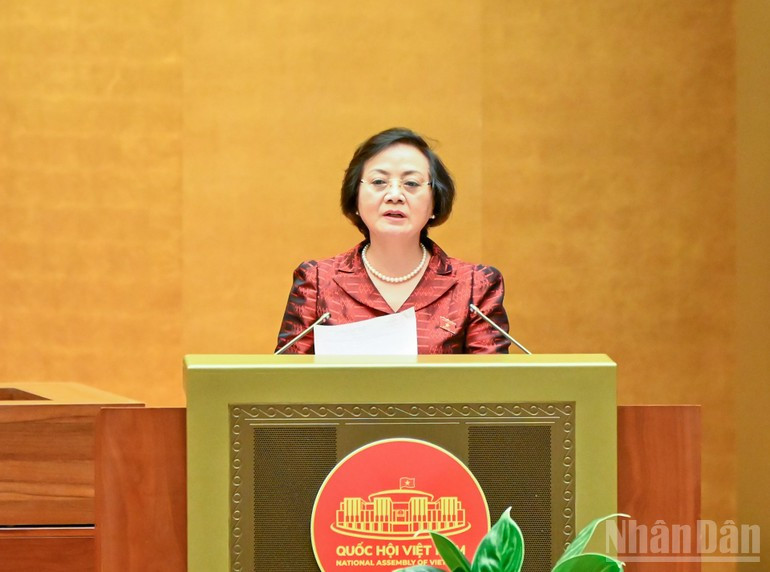
Regarding the mechanism for managing and using cadres and civil servants, the Law supplements and perfects regulations to transform the method of managing cadres and civil servants according to job positions, taking job positions as the center.
Based on the requirements of the job position and the results and products of the task performance to recruit, arrange, use, evaluate, train, plan and appoint staff.
3 forms of attracting high-quality human resources outside the public sector
Another notable content is the completion of the mechanism to attract high-quality human resources and policies for talented people in public service activities to institutionalize Resolutions No. 57-NQ/TW dated December 22, 2024, No. 66-NQ/TW dated April 30, 2025 and No. 68-NQ/TW dated May 4, 2025 of the Politburo .
Accordingly, the policy regulations apply to two groups of subjects, including the group of subjects attracted to the public sector applicable to high-quality human resources and the group of subjects who are talented people in public service activities.
Three forms of attracting high-quality human resources outside the public sector include: accepting civil servants; signing contracts with outstanding businessmen, lawyers, good lawyers, experts, scientists to perform one or several tasks of leadership and management positions; and signing contracts with high-quality human resources to perform one or several professional and technical tasks.
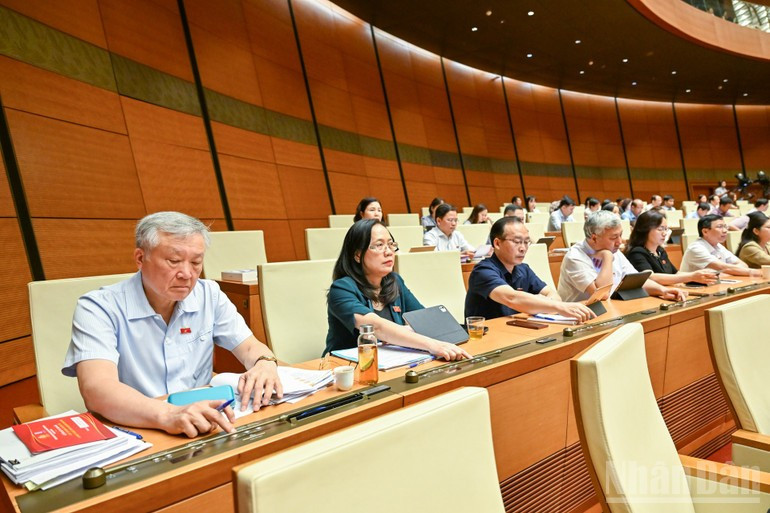
In addition, the Law stipulates the obligations and rights of officials and civil servants to institutionalize the breakthrough Resolutions affirmed as the "Four Pillars" of the country's development, including additional regulations on the responsibility of leaders in cutting administrative procedures related to people and businesses.
At the same time, revise regulations on principles and conditions for registering for civil service recruitment and recruitment methods and authorities to innovate civil service recruitment in the direction that selected candidates must immediately meet the requirements of the job position, and after being recruited, they will be placed in the corresponding civil service rank; simplify administrative procedures.
In addition, the Law supplements and adjusts regulations on job positions and civil servant ranks to attract high-quality human resources from the private sector, encouraging civil servants to develop in a professional and technical path without necessarily having to be appointed to leadership and management positions and titles.
Along with that, clarify the principles, authority, content, and methods of evaluating and classifying the quality of civil servants on the basis of regular, continuous, multi-dimensional, and quantitative monitoring and evaluation using specific criteria associated with progress, quantity, and quality of results and products according to job positions; use evaluation results to implement rewards, additional income regimes, bonuses, or consider assigning to lower job positions or dismissing people who do not meet job requirements from the apparatus...
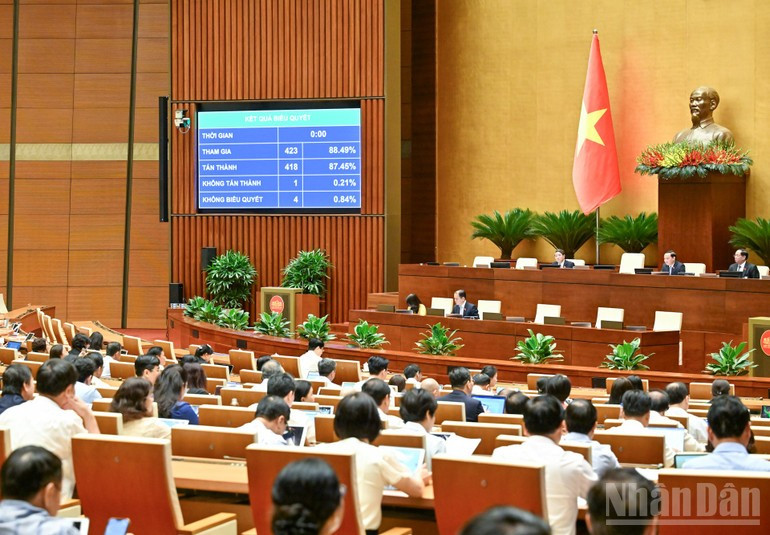
Complete job placement and corresponding rank before July 1, 2027
Those who are currently on probation shall terminate their probation and be placed in a grade corresponding to their job position from the effective date of this law.
By July 1, 2027 at the latest, ministries, branches, central and local agencies must complete the job placement and rank assignment corresponding to the job position for civil servants recruited before the effective date of this Law.
The Law on Cadres and Civil Servants (amended) takes effect from July 1, 2025, except for the case of regulations on civil servant assessment which will be implemented from January 1, 2026./.
Source: https://baobackan.vn/chinh-thuc-quan-ly-can-bo-cong-chuc-theo-vi-tri-viec-lam-post71587.html



![[Photo] General Secretary To Lam attends the ceremony to celebrate the 80th anniversary of the post and telecommunications sector and the 66th anniversary of the science and technology sector.](https://vphoto.vietnam.vn/thumb/1200x675/vietnam/resource/IMAGE/2025/9/29/8e86b39b8fe44121a2b14a031f4cef46)

![[Photo] National Assembly Chairman Tran Thanh Man chairs the 8th Conference of full-time National Assembly deputies](https://vphoto.vietnam.vn/thumb/1200x675/vietnam/resource/IMAGE/2025/9/29/2c21459bc38d44ffaacd679ab9a0477c)
![[Photo] Many streets in Hanoi were flooded due to the effects of storm Bualoi](https://vphoto.vietnam.vn/thumb/1200x675/vietnam/resource/IMAGE/2025/9/29/18b658aa0fa2495c927ade4bbe0096df)
![[Photo] General Secretary To Lam receives US Ambassador to Vietnam Marc Knapper](https://vphoto.vietnam.vn/thumb/1200x675/vietnam/resource/IMAGE/2025/9/29/c8fd0761aa184da7814aee57d87c49b3)








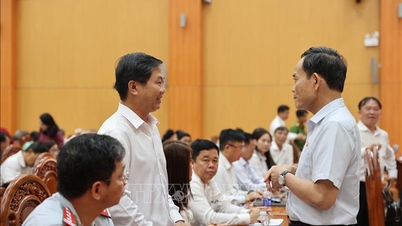
![[Infographics] Time, location, content of the 1st Congress of An Giang Provincial Party Committee, term 2025 - 2030](https://vphoto.vietnam.vn/thumb/402x226/vietnam/resource/IMAGE/2025/9/30/fed466586ad84c3ebea914be993018ca)















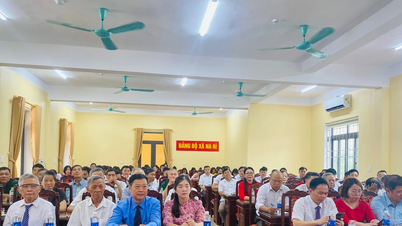
![[Updated news] Ceremony to announce the merger of provincial and communal administrative units in Thai Nguyen - Bac Kan](https://vphoto.vietnam.vn/thumb/402x226/vietnam/resource/IMAGE/2025/6/30/0de85cb56da843d897e30016b57b1412)

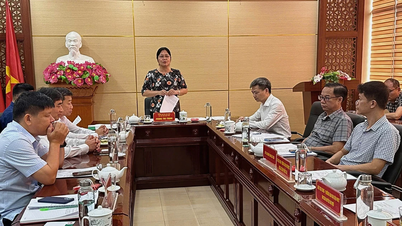





































































Comment (0)